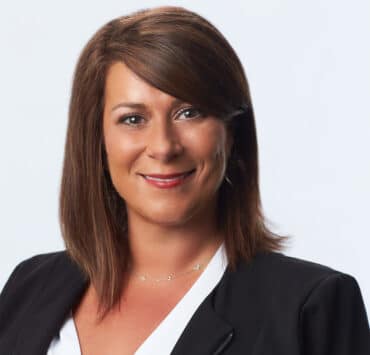|
Getting your Trinity Audio player ready... |
It wasn’t supposed to last this long, at least Donald Broadfield didn’t think it would. The chief intellectual property and data counsel at American Airlines thought he’d be with the company for about as long as it takes a frequent flyer to earn enough points for a free vacation flight. The attorney had handled complex litigation for six years in a firm and figured it would make sense to go in-house for a while before transitioning back to private practice. That was seventeen years ago.
The challenges of the airline industry seem to be the very reasons that Broadfield has stayed at American Airlines. The drastically shifting landscape of airline travel following 9/11, the “dead decade” of the 2000s where airlines were struggling to survive, and now a pandemic—these are the things that have made every day in the airline industry one-of-a-kind for Broadfield.
While he doesn’t express outright gratitude for the challenges provided over seventeen years, he says it’s what has kept him at American Airlines for nearly two decades.
“In some ways, airlines become a bellwether for everything else that is going on in the world,” Broadfield explains. “Everything about it is challenging. But I can honestly say I’ve never had a boring day here. I don’t know many jobs where I can deal with regulatory authorities or legal cases throughout the world with such regularity. There’s really nothing like it.”
Double-Edged IP
Broadfield came to American Airlines in 2004 as antitrust counsel, but he says the nature of in-house work quickly had him widening his responsibilities. Early victories included bringing discovery, often the most expensive aspect of litigation, in-house.
The attorney was eventually tasked with helping rebuild a neglected IP portfolio. The result over the past decade-and-a-half allowed American Airlines’ IP to be collateralized, an accomplishment that has brought the lawyer great pride. But it wasn’t without headaches.
“The fact that we were able to collateralize our IP for so much helped show the value of everything I’d worked hard for over the years,” the lawyer explains. “On the other side, there are now even more requirements and obligations in the protection and reporting of our IP. That has resulted in much more work on my end.”
That work is, for Broadfield, indicative of the in-house function at an airline. The legal team is expected to be able to shoulder a great deal of work, unlike companies that dish out most matters to outside counsel. “It really requires you to take ownership,” Broadfield says. “It’s required a great deal of learning on the fly and working to pick up as much as you can, and that was before the pandemic.”
Wingin’ It
As more work was added to airline’s legal team, the pandemic hit. Deep cuts had to be made to ensure survival, and legal was once again asked to expand its breadth. Broadfield’s antitrust, IP, and complex litigation work now included new areas like bankruptcy—a particularly challenging matter considering so many of the airline’s third-party partners were going through bankruptcy as a result of the COVID-19 shutdown.
“In a lot of ways, it was trying to fight a gun battle while teaching yourself to shoot at the same time,” Broadfield says. “It required us to work together more than ever before and really be creative with our use of contract counsel. If you’re bringing them in, it means you’re now teaching them at the same time you’re trying to get them to help. That creates more work in the short term, but you see the benefits in the long term.”
The attorney says that the flexibility, teamwork, and adaptability shown during the most challenging time in the airline’s existence has long-range implications. The organization has learned that it can weather the most difficult of circumstances.
“At the same time, we’ve learned we can lean on each other,” Broadfield continues. “This required the entire business to work together in a way that knocked down any silos we had internally. The interdependence simply required those gone.”
It would be nice to say the skies are clear, but Broadfield’s work is perhaps more challenging now than ever. The pandemic meant fewer people on planes. As people return to air travel, American is now competing with every other airline to recover from the pandemic setback better, faster, and stronger.
“We have to spool up and spool up quickly,” Broadfield says. “I think I may be busier now than at any point since I started here.”
Everything Always
Broadfield’s extensive and varied to-do list seems daunting, but, again, it’s the reason he’s been at American for so long.
“Don Broadfield is among the hardest working lawyers I’ve ever known,” says Dee Kelly, partner at Kelly Hart & Hallman. “Mix that with his deep substantive knowledge of the law, and you understand why Don’s been so successful. He’s a force for American.”
There is antitrust litigation in the Southern District of New York in the matter of US Airways v. Sabre Holdings Corp., a holdover matter from before the American/US Airways merger of 2013. Broadfield also has work in the Northern District of Texas in American’s trademark portfolio suit against Delta Airlines that goes to trial in July 2021.
There is the ever-ballooning IP portfolio, the increased ask of a legal team that has had to endure company-wide cuts while finding ways to do more. Broadfield makes no excuses are accounting for the challenges of his role. What measures against the stress?
“Flying just has a special aura around it,” the lawyer explains. “When you see planes coming or going, you realize they’ve been somewhere and are bringing new experiences along with them. It might be salmon from the Northwest, grapes and strawberries from the West Coast, or tulip bulbs from Europe. It’s just special. It gets in your blood. It’s why I’m still here.”
American Airlines has been around since 1928. They boast the first and longest-running loyalty program—in any industry—in the world. American continues to lead in its revitalized IP, its ability to rebound from challenges, and, maybe most importantly, in giving its customers just a little extra over its competition.
But none of these accomplishments are what Broadfield thinks of when asked what stands out in his career.
“It’s the experiences and the people that sticks with me,” the attorney says. “Over seventeen years, I’ve met so many amazing people both inside and outside the company that I’ve been able to work across from. That’s what I think of. It’s what I’ll always remember best.”







